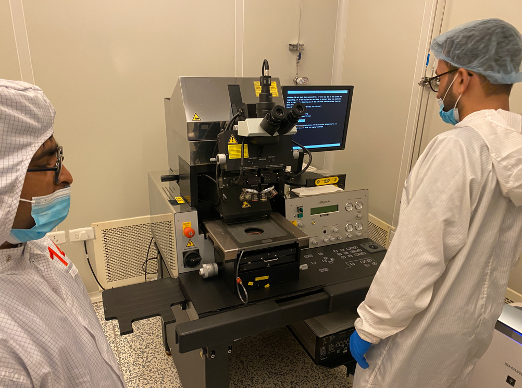For young researcher Josh McDonald, receiving an Australia India Research Students (AIRS) Fellowship presented a unique opportunity for both academic and personal growth. In addition to pursuing his research interests in smart farming solutions, the Fellowship afforded Josh the chance to meet some of his wife’s extended family for the first time and develop a deeper appreciation for Indian culture. Here, the Queensland University of Technology master's student reflects on the meaningful experience.
What motivated you to apply for an AIRS Fellowship? India is a diverse and vast country, offering many opportunities for both academic and commercial pursuits. I wanted to step out of my comfort zone to share my research, collaborate, and build a global network, while also satisfying a personal goal of visiting India for the first time. My wife was born in India and now having visited her family in India, I feel a stronger connection to Indian culture and a great sense of pride.

Can you tell me a little about your Fellowship project? My research focused on developing biodegradable electronics using chitosan – a biopolymer derived from the shells of crustaceans – to develop flexible electronics for sensing and power generation. Solar cell and transistor architectures were investigated which have potential applications in smart agriculture, particularly in monitoring crop health.
How did the Fellowship support your research pursuits? I was fortunate to receive expert guidance from the Indian Institute of Technology Madras during my six-week exchange. While I had my own set of research goals to achieve, I was also excited to learn as much as I could from my host group. A highlight was witnessing the process of UV-photolithography as used in semiconductor chip manufacturing. I was also able to share my skills with some PhD students, including helping one student build their first working solar cell for their project.

How was your experience of conducting research in India? My host institute offered me valuable insight into how universities operate in different parts of the world.





